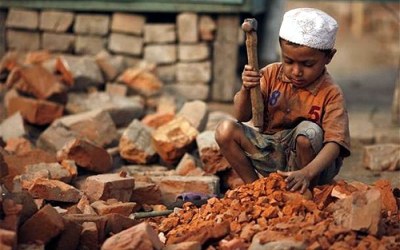As the second-largest Muslim nation, Pakistan is 96 percent Muslim, with the remaining population comprised of Christians, Hindus, and Ahmadis. However, convictions of this small percentage of religious minorities under Pakistan’s strict blasphemy laws frequently make international headlines. These laws allow the death penalty for anyone convicted of insulting the Prophet Muhammad or his companions. More concerning is that even before courts can convict someone, Islamist vigilantes murder many of those accused of blasphemy, and the head of the leading political party, Pakistan Tehrik-e-Insaf, encourages these murders. Recent laws have further protected Islamic teachings with strict censorship rules. However, if Pakistan will take such great lengths to “protect” Islam and its Muslim citizens, it should also seek to protect fellow Muslims abroad who are the victims of ethnic cleansing, oppression, or persecution. Here, I name the Rohingya, the Uighurs, and Palestinian Muslims.
Rohingya
Though relatively unknown in the West before 2017, the Rohingya are a predominantly Muslim ethnic minority in Myanmar (Burma) and Bangladesh. Their tumultuous history reaches back to British colonization. Some have lived in Myanmar (specifically in Rakhine State) for centuries and converted to Islam via Islamic traders. Encouraged by the British, others came from Bangladesh into Myanmar as migrant laborers. After World War II, the British did not fulfill their promise to create the Rohingya’s own state, and Myanmar stripped them of citizenship in 1982. Thus, termed as “illegal immigrants,” the military-controlled government has held thousands in camps in inhumane conditions for years.
Myanmar has not allowed journalists, either national or foreign, in Rakhine State since the conflict between the Rohingya and Myanmar’s security forces, also known as the Tatmadaw, escalated in 2017. As a result, determining the severity of the situation is near impossible. However, most agree that Rohingya militants (the Arakan Rhakine Salvation Army or ARSA) attacked 30 police posts and killed 12 security force members on August 25, 2017. Amnesty International has compiled significant evidence that Rohingya militants massacred at least a hundred Hindus in Rakhine State that same day. These events prompted a brutal crackdown by the Tatmadaw that resulted in 288 burned Rohingya villages, approximately 6,700 Rohingya dead, and hundreds of thousands fleeing to Bangladesh. …
This article was originally published in Providence Magazine. To continue reading, please click here.
By Isabella Meibauer
Second-Class Citizen Day | Religious Minorities in Pakistan
Earlier this month, Pakistan celebrated its eighth National Minorities Day. The day’s significance originates from a speech in which Pakistan’s founder, Mohammad Ali Jimnah, envisioned a Pakistan that would be respectful of all religious backgrounds. “You may belong...
No Honor in Murder: Calling It What It Is
The recent strangling of Qandeel Baloch, a Pakistani social media star, by her brother has revealed the widespread issue of honor killings throughout Pakistan. Despite Baloch’s controversial publicity, her fame helped to illuminate the growing problem of abuse against...
Lack of Healthcare for Pakistani Minorities
The news agency Dawn recently published an article drawing attention to Pakistan’s meager health care system. Aptly titled “My 10 Days of Hell at a Lahore Hospital,” the middle-class author describes the miserable treatment, or rather lack thereof, given to her...






0 Comments